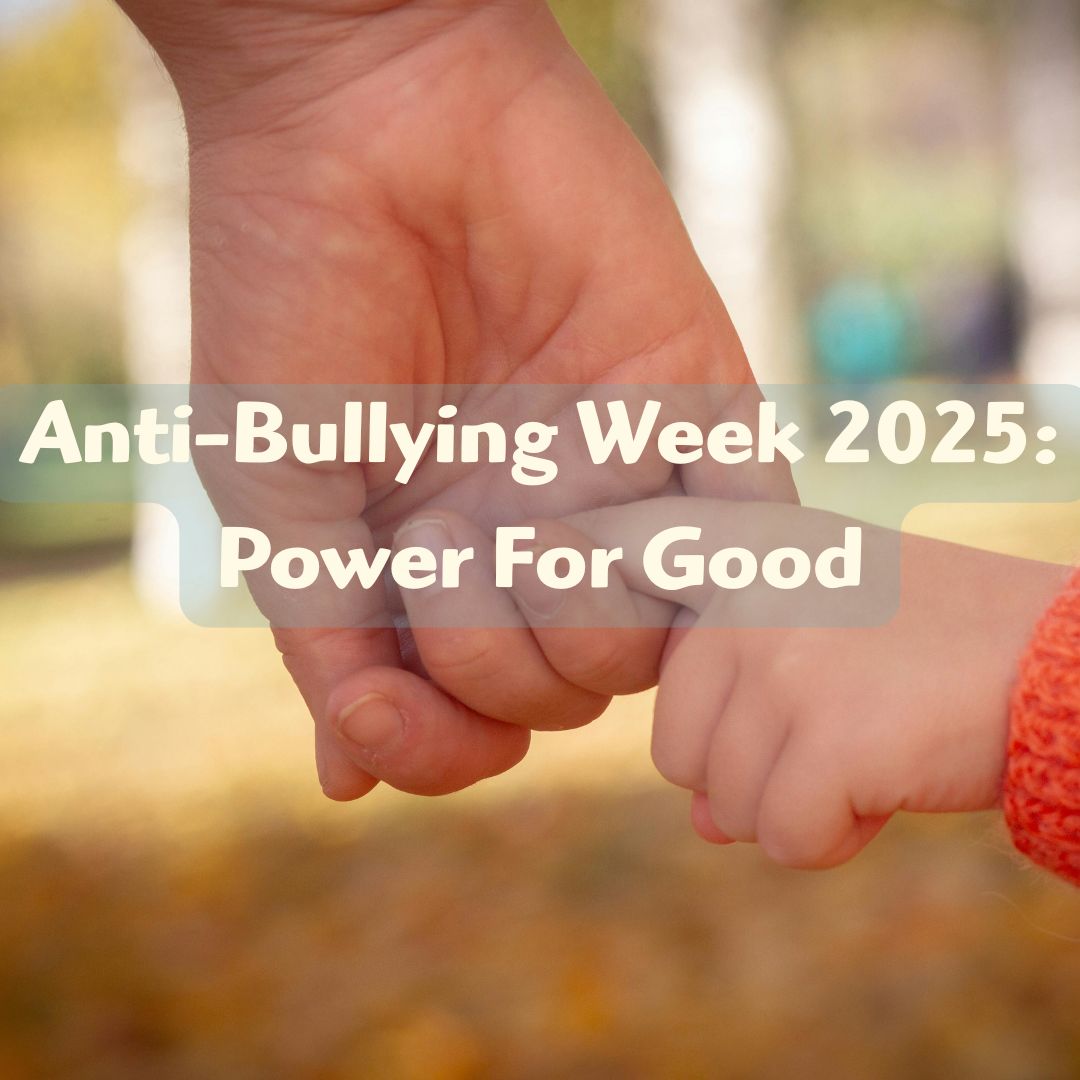Anti-Bullying Week 2025: Power For Good
Date published
13 November 2025

Anti-Bullying Week 2025 is taking place from Monday, the 10th of November, through to Friday, the 15th of November.
In today’s blog, we’re taking a look at the purpose of Anti-Bullying Week and how foster carers can engage with this year’s theme of ‘Power For Good’.
Anti-Bullying Week is an annual campaign led by the Anti-Bullying Alliance (ABA). The ABA was established in 2002 by the NSPCC and the National Children’s Bureau to tackle the rising issue of bullying, highlight the devastating effects of bullying on children and their families, and to:
‘help create safer environments for children to live, grow, play and learn.’
(ABA, 2025).
The aim of Anti-Bullying Week is not only to raise awareness of bullying and the harm it causes, but also to help children, young people and those around them to tackle and respond to bullying in an effective way.

Research from the Department For Education (DFE) looked at bullying and found that a staggering 40% of year ten pupils had been bullied in the past year!
6% of the pupils asked had experienced bullying daily, and almost a quarter of these had been kept off school by their parents as a result, with almost as many (21%) resorting to truancy to avoid having to face their bullies.
Studies have shown that the impact of bullying on children’s lives can be significant and can even go on to affect them as adults. In some cases, it’s thought that the effects may be as devastating as those of child abuse, with victims of bullying being more likely to suffer from poor mental health, have difficulties with relationships, be out of work, have lower (or no) qualifications, and earn less money.
With the rise of smartphone use among young people, and increasing pressure to maintain a social media presence, sadly, bullying is now happening online as well as in-person.

This year’s theme for Anti-Bullying Week is ‘Power For Good’. This was decided in consultation with teachers and pupils at schools across the UK, who wanted something that made them feel positive and empowered in tackling bullying.
The ABA has posted a call to action in response to this year’s theme, encouraging people to use their power for good and to speak up and raise awareness when they encounter bullying, whether in-person or on screen.
When it comes to bullying, we all have a part to play. Foster carers are well placed to spot the signs of bullying and to support children and young people who are experiencing bullying.
It’s also crucial that foster carers and professionals working with looked after children understand that care-experienced children are at increased risk of bullying. In fact, the Safe to Play report (2008) found that looked after children at primary-school were twice as likely to experience bullying as their peers, and at secondary-school age, children in care were a whopping four times more likely to experience bullying.
Looked after children also reported facing stigma, prejudice, labelling and loneliness, as a result of their teachers or fellow pupils finding out they were in care.
Fortunately, as a foster carer, there are things you can do if a child you’re caring for is being bullied. Establishing close working relationships with their school and any other professionals involved is key, as well as building trust with your foster child or young person, so that they feel able to speak to you about the issues they’re experiencing without shame or fear of being blamed.
The anti-bullying alliance has also put together a resource pack for parents and carers who want to get involved in Anti-Bullying Week.
Here at Olive Branch Fostering, we understand how distressing bullying can be for children and young people who find themselves targeted whether it’s in the playground or online.
We also know that bullying doesn’t only impact the child or young person, and that the consequences can be far-reaching, affecting whole families and communities.
At Olive Branch, we offer 24/7, 365-days-a year support to our fostering families, so there’s always someone on hand no matter when issues arise. We also have a comprehensive training and development program, so that our carers are skilled, knowledgeable and empowered to care for and support children and young people.
There are children waiting throughout the North West for safe, loving homes so if you think you’ve got what it takes to be that person for a child or young person, we’d love to hear from you! Enquire now to find out more about becoming a foster carer with Olive Branch Fostering, or book a no-obligation callback with one of our friendly fostering advisors.
News
13 November 2025